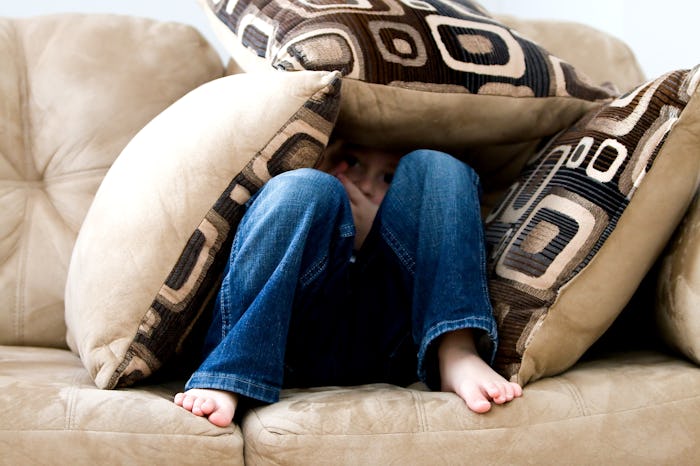Most people know that bullying doesn't feel good emotionally, but over the years researchers have uncovered the ways in which the experience of getting bullied feels bad physically, too. But new research is also showing that the bullying people experience as kids and teens doesn't just feel bad in the moment — those effects can last throughout a person's life. In fact, a new review of research by from the Mayo Clinic found that getting bullied as a kid can make you sick as an adult.
Even though parents are often most concerned about the psychological impact of bullying on things like a child's self-esteem and, separately, the fact that it contributes to the risk of developing depression and anxiety, bullying can also cause physical symptoms, according to the American Society for the Positive Care of Children. Kids who are experiencing bullying might seem to get frequent headaches, muscle aches, or stomach aches, which can alert parents that something's wrong at school. Parents might think that kids are using physical complaints to avoid school, and if they're being bullied that certainly may be the case — but because of the body's stress response to confrontation, fear, and other emotional experiences associated with bullying, the physical complaints can also be very real.
Dr. Susannah J. Tye, Ph.D, and her colleagues at the Mayo Clinic reviewed the body of research about the longterm health effects of childhood bullying and found that "any form of continued physical or mental stress can put a strain on the body leading to increasing 'wear and tear.'" The experience of chronic stress can have an impact on everything from a child's ability to develop psychological resistance strategies to actually altering their genetics, according to Tye.
Bullying can take on many different forms, too: physical demonstrations like hitting or destroying a child's property (ripping up their homework, stealing a toy, etc.), verbal assaults like name calling or things like social exclusion (where a child might be purposefully left out of activities with peers). The internet, too, adds an additional layer: cyberbullying. Nearly half of kids report being bullied online, according to DoSomething.org — and 81 percent say they think it's easier to get away with bullying online than it is in person.
Regardless of where the bullying occurs, the experience of being bullied can increase a young person's risk of psychiatric and other chronic diseases well through their teens and into adulthood, according to the research Tye's team analyzed. One study published in the Proceedings of the National Academy of Sciences found that people who had experienced bullying in childhood were more likely to have low-grade systemic inflammation, which could impact their health well into adulthood.
While these studies didn't explicitly point to a causal relationship between bullying and specific chronic diseases of adulthood, researchers know that bodily stress ramps up the human body's inflammatory response, which in turn can be a risk factor for cancer and other chronic conditions, according to the National Cancer Institute.
What researchers agree on across the board is that this area is definitely worth further study — not just so that adults can help kids and teens as they're experiencing bullying, but hopefully to prevent any longterm negative effects on their health. Until then, parents can learn to recognize the signs of bullying and find ways to talk to and support their kids if they're experiencing any kind of bullying — online or off.
